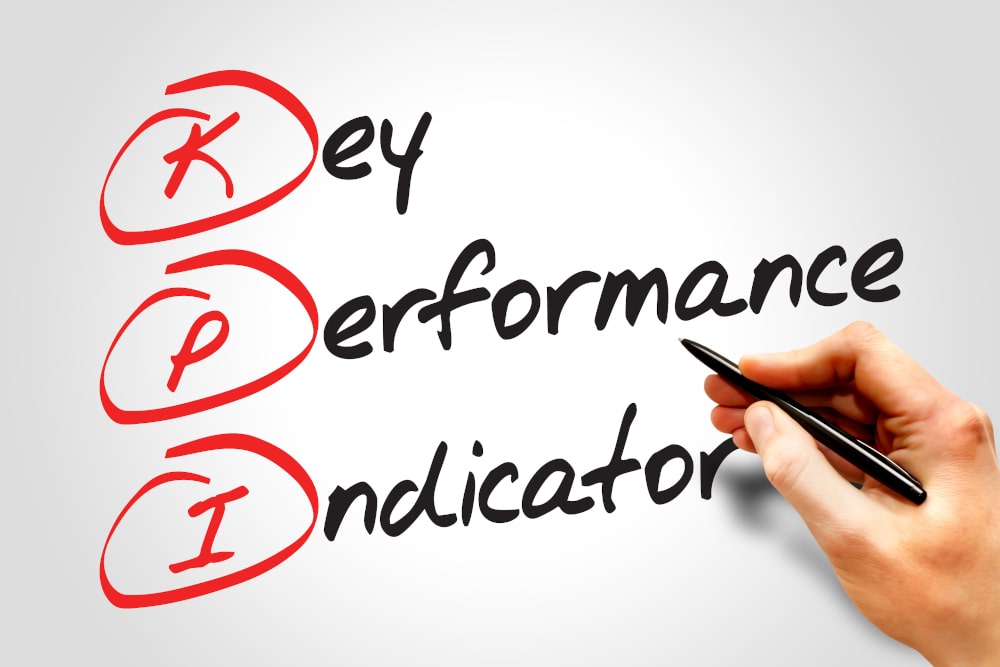KPIs for SEO

An SEO campaign is only as good as the results it brings in, and those results need to be carefully measured and analyzed. Key performance indicators, or KPIs, are the key to guaranteeing top results. These indicators give you a chance to examine real data about the effectiveness of your SEO campaign. This allows you to determine what methods are effective, what needs to be modified, and what needs to be abandoned as the campaign continues.
KPI Objectives
To use KPIs to their fullest, you need to make sure that you have a set of objectives for each project. Each KPI should map to a specific objective and give you measurable information that you can use regarding it. A lot of this process involves asking, "Why?" Why do you want to use a given keyword? What will that accomplish? Once you know the reason behind what you are doing, it is much easier to put a working system in place. Having this list of objectives also allows you to leverage your KPIs into an evolving business plan. If one of your objectives is not being met as effectively as it was in the past, the data you are collecting allows you to adjust to the problem and fix it much easier than before.
Using KPIs as Clarification
When presenting the effects of an SEO campaign before a board or potential investors, one of the biggest problems with unfocused information is the possibility that the people you are presenting to will leave the meeting with less clarity than before. This happens anytime a person cannot present facts in a meaningful, engaging way. KPIs help to focus the data that you are presenting, providing context and clarity to each objective. This minimized paralysis by analysis and makes it possible that even people who are not directly connected to your marketing campaign can easily digest the information.
Categorizing KPIs
The most common way to categorize KPIs is by focusing on three particular areas: awareness, engagement, and conversion. These measurable help you build an audience, drive their interest in your product or service, and create sales and leads. Alternately, you can use the "VQVC" categorization, focusing on volume, quantity, value, and cost. Volume measures unique visitors and page views, quality measures the visit duration and bounce rate, value provides a numerical financial vial on a visit or conversion, and cost, gives you the bottom line of how much each lead or sale is costing you. Choose the categorization that fits you and make sure you apply it consistently.
SEO Metrics
Once you understand the uses of SEO KPIs, the next step is to determine which metrics you will use to gauge progress. One of the most common set used are SEO metrics, which require you to compare your measurable with your competitors' value for context. These metrics include:
- Rank for main converting keywords
- Rank for secondary benchmark keywords
- Majestic citation flow
- Majestic trust flow
- Majestic trust and citation balance
- Moz domain authority
- Moz page authority
- Moz spam score
Real-World SEO KPIs
Another commonly used set of KPIs looks at organic site usage and traffic. These KPIs allow you to get an understanding of what an increase in traffic really means. These metrics include:
- Increase in organic traffic
- Increase in number of pages on the site that generate traffic
- Increase in non-branded search traffic
- Percentage increase in organic conversions
- Percentage increase in traffic from specific geographic regions
- Organic impressions
- Organic click-through rate
Additional Metrics
Many other KPIs can be tailored to your business needs to provide you with the metrics you need the most. Some common areas that companies look at includes referral traffic increases, branded search traffic changes, number of links from authority sites, and number of leads built through items such as newsletter signups. The important thing to remember with all of these KPIs is that you need to have a strong strategy, a clearly stated client goal, and a consistent list of KPIs to focus on.
KPIs for SEO can measure virtually any area of SEO marketing and can be used in a wide variety of ways. By using these metrics, you get an early warning system against your marketing campaign struggling and provide real strategic value to your SEO initiative.
